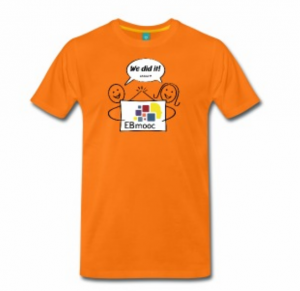 Das 1*1 spielerisch erlernen, war das Ziel einer neuen App und ich glaub das ist uns gut gelungen. Mit Hilfe eines Spielmodus können zwei Spieler gegeneinander antreten. Damit es auch so richtig lustig wird, haben wir Joker eingebaut – mal sehen wie es in der Praxis ankommt. Jedenfalls freuen wir uns auf Rückmeldungen.
Das 1*1 spielerisch erlernen, war das Ziel einer neuen App und ich glaub das ist uns gut gelungen. Mit Hilfe eines Spielmodus können zwei Spieler gegeneinander antreten. Damit es auch so richtig lustig wird, haben wir Joker eingebaut – mal sehen wie es in der Praxis ankommt. Jedenfalls freuen wir uns auf Rückmeldungen.
Achja und das ganze verwendet natürlich die Daten unseres 1×1-Trainer.
The 1×1 Trainer Plus is a learning application for kids, that allows to learn simple multiplications playfully. Tasks can either be solved alone or in a duel with another player. Both modes can be played offline or online. For online-mode an account is required. After login all calculation tasks are generated online and the learning progress can be followed at http://schule.learninglab.tugraz.at.











